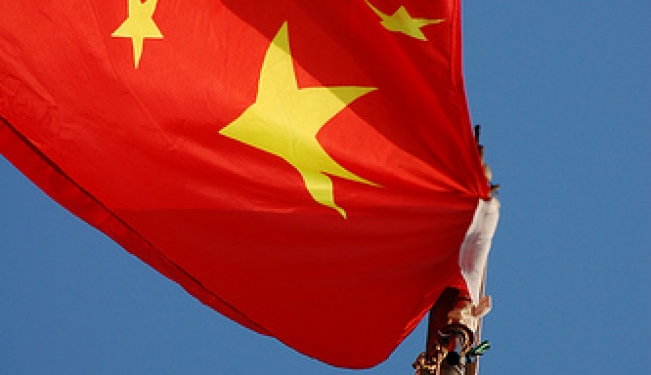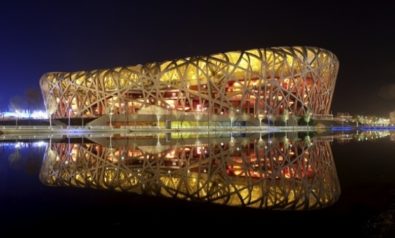A commentary on China’s interests in the lands and seas surrounding it and the need for counter measures by states situated in China’s periphery.
China’s rulers have a problem. They are not sure if they can continue to portray the image of a country interested in a peaceful rise without this coming into direct conflict with a desire to reassert newly defined core interests. All of 2010 saw more assertive Chinese foreign policy activity in its periphery, possibly reflecting a tussle of some sorts in Beijing between an assertive People’s Liberation Army (PLA) which may want a bigger role in foreign policy in the decade ahead, and a political leadership that is now going to be in transition as Mr Hu Jintao prepares to hand over power to his selected successor, Xi Jinping, by 2012. This would explain this display of assertiveness within each power centre, notably the PLA and the Party hierarchy, which have positioned themselves inside China and against the US (where there will be presidential elections in end-2012).
Recent reactions in the Chinese media to the visit of the Indian ship INS Airavat are only a reassertion of China’s aggressive stance. China had taken umbrage at US secretary of state Hillary Clinton’s July 2010 remarks in Hanoi on creating an international mechanism to resolve this issue, and this has been particularly visible in the past few weeks. Earlier, Dai Bingguo conveyed to Ms Clinton in May 2010 that China regarded its claims to the South China Sea as a core national interest.
The Chinese carried out a live ammunition PLA Navy exercise in the South China Sea on July 26, 2010 followed by another exercise on August 3 along the Yellow Sea coast — the other area of contention. The Chinese conducted exercises there in April and June this year, and were now asserting that China opposed any foreign ships entering the sea or adjacent waters; they even vehemently opposed joint US-South Korean exercises there.
The message in these demarches to the US was in keeping with protecting China’s core interests in the adjacent seas and telling the US that the western Pacific was China’s sphere of interest and influence. It suggested a division of zones of influence between the Eastern and Western Pacific. The US and China have their own geostrategic rivalries to settle, and the Chinese may have assessed that their moment has come.
China’s reaction to the visit of the Indian ship has to be seen in this context – it is part belief in its history, part knee jerk, part bullying, part worrying about energy resources, and part suspicion about the growing India-Vietnam-US triangular relationship in the South China Sea. The influential Communist Party-managed newspaper, Global Times, was somewhat hysterical when, in its editorial of September 16, it warned India that any deal with Vietnam would be ‘serious political provocation’ which could ‘push China to the limit’. It described the ONGC’s (Oil and Natural Gas Corporation) Vietnam deal as a reflection of Indian ambitions. The newspaper went on to say that while China was sincere about its peaceful rise it would not give up its right to use other means to protect its interest. China cherished its friendship with India but this did not mean that China valued this above all else. It referred to India’s intervention in the Dalai Lama issue and ended with the warning that ‘we should not leave the world with the impression that China is only focused on economic development nor should we pursue the reputation of being a peaceful power,’… Clearly, there is a debate ongoing inside the sanctum sanctorum of the Chinese Communist Party.
China’s reaction is also a reflection of its concern for energy resources. China has only 1.1% of the world’s known energy reserves but consumes 10.4 % of the world’s oil production and 20.1 % of total energy consumption in the world. The mismatch is obvious and will grow more in the years ahead. Naturally, China views the disputed South China Sea zone and its energy reserves with special interest. Some estimates state that the known reserves of the South China Sea are twice as much as China’s reserves of oil and that there is also plenty of natural gas in the sea.
The Indian reaction to this charge by Beijing has been firm in pointing out that India’s cooperation with Vietnam or with any other country ‘is always as per international laws, norms and conventions…’ India has also pointed out China’s role in the disputed part of POK (Pakistan Occupied Kashmir) where China may be on the verge of using the territory for developing communication links with Afghanistan. Obviously, China is planning for a post-US phase in Afghanistan, access to its mineral resources, and an ultimately linking to Iran and the Gulf. It would not want the region to be solely India’s sphere of influence. India has also to keep its own vulnerabilities in Arunachal Pradesh in mind; even though outright war is unlikely it should expect both economic cooperation and periodic tensions with China. China-India relations will not be determined by strict bilateral terms. As both countries rise, there will be competition in other spheres – for markets, resources and influence.
Yet China remains concerned with its intricate trade and financial links with the US, and also with the security of its trade and supply routes that transit the Malacca Straits. It has endeavoured to develop extensive land routes through Central Asia, but these are inadequate. It is a matter of time before China will make its presence more visible in the Indian Ocean. It has port facilities in Kyaukpyu, Hambantota and Gwadar, and a presence in the Arabian Sea, where it battles Somali pirates. China has expanded its contacts with Iran and has developed strong ties with Burma.
It is of course entirely feasible that China would have reacted in this manner even if there was not the question of energy reserves present in the South China Sea. It would have had more to do with its own perception as zhongguo – the “Middle Kingdom” or the “Central Country”, where neighbouring countries were considered to be vassal states and which accepted the Emperor in Beijing as the supreme power in the region.
Thus while New Delhi agonises over challenges across land frontiers, ignoring the new challenge in the Indian Ocean would hurt Indian interests. There is need to plan counter measures in China's periphery from now. Perpetual whining about China's grand designs will not help.
This article was first published by Asian News International on September 21, 2011.
Support Fair Observer
We rely on your support for our independence, diversity and quality.
For more than 10 years, Fair Observer has been free, fair and independent. No billionaire owns us, no advertisers control us. We are a reader-supported nonprofit. Unlike many other publications, we keep our content free for readers regardless of where they live or whether they can afford to pay. We have no paywalls and no ads.
In the post-truth era of fake news, echo chambers and filter bubbles, we publish a plurality of perspectives from around the world. Anyone can publish with us, but everyone goes through a rigorous editorial process. So, you get fact-checked, well-reasoned content instead of noise.
We publish 2,500+ voices from 90+ countries. We also conduct education and training programs
on subjects ranging from digital media and journalism to writing and critical thinking. This
doesn’t come cheap. Servers, editors, trainers and web developers cost
money.
Please consider supporting us on a regular basis as a recurring donor or a
sustaining member.
Will you support FO’s journalism?
We rely on your support for our independence, diversity and quality.








Comment